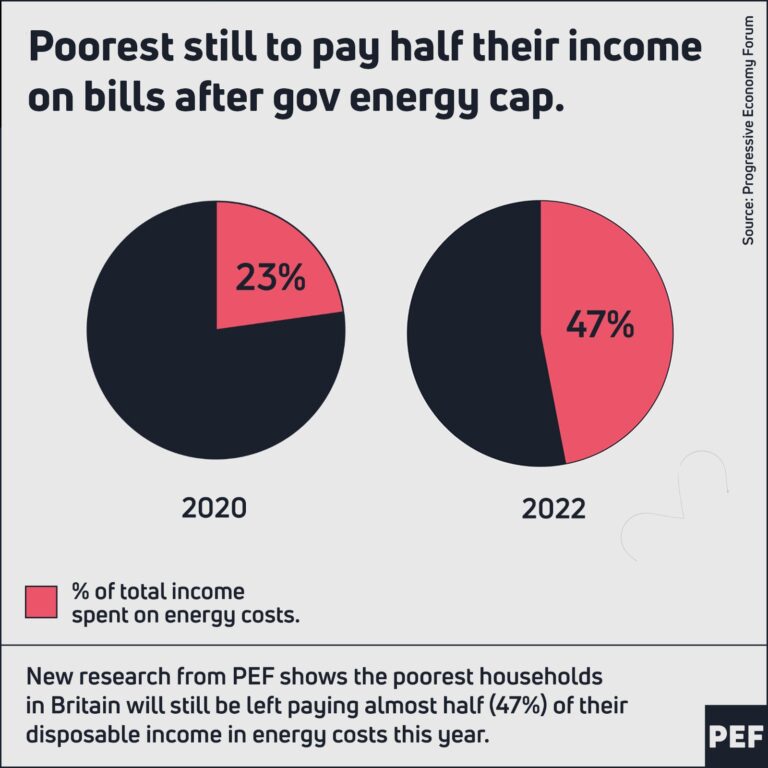A welcome change but more is needed
We welcome the government’s new measures to support workers, particularly the introduction of grants for wage support. But despite the scale of these spending commitments, there is a real danger that millions of workers will not feel their benefit.
The government must move decisively to get cash into the bank accounts of households and firms before the economic dominos start to fall. Substantial support has been announced, which will be welcomed by many workers — but it will not reach all who need it. The government is certainly moving in the right direction, but the new measures will fail to reach all workers, and could take until the end of April to come into force.
More clarity is also needed on the announcement that the government will provide grants to businesses, covering up to 80% wage costs to a limit of £2,500 per worker. If these grants reach the businesses that need them, they could prevent millions of redundancies. But there is no assurance that every business that needs support will receive it: the government needs to specify if the payment is more or less automatic, how it will get into firms’ accounts quickly and how it will ensure that this cash translates into wages at the end of the line.
Stipulations against layoffs need to be in place
A further problem with the announced plans is that no stipulations are placed on firms keeping workers on payroll. Financial support for firms must come with conditionality: at a minimum, no workers are to be laid off. People are losing their jobs right now – the government must act immediately to stem the flow. Without this stipulation put in place immediately, firms – and their payroll systems – will be shutting up shop in the intervening period, simply precluding the possibility of utilising the government’s ‘Job Retention Scheme’.
The self-employed are left out in the cold and need urgent support
The 5 million people who are self-employed will have taken little comfort from last Friday’s announcements. Greater support is needed. The expansion of an already overburdened Universal Credit system to cover the self-employed will make little difference. While a worker on PAYE could receive up to £2,500 per month, a self-employed worker might only receive statutory sick pay – £94.25 per week.
It is our understanding that self-employed workers who have filed tax returns with HMRC in the past could be supported within days of a governmental decision. As HMRC already holds the bank account details of these workers, it would simply be a matter of paying cash into their accounts.
Universal Credit will not be able to cope or deliver
Universal Credit is going to wilt under the pressure of new unemployed applicants in the coming weeks and months. Other than a minor improvement in levels of income support, no support has been announced for those outside of formal employment, unemployed persons, those receiving personal independence payment, or others without a current employer such as university students. For these people, immediate removal of means-testing from current social security payments should be introduced as a matter of urgency.
We applaud the government for taking advice from the TUC and CBI, and recent measures move very much in the right direction. But it must go further – time is of the essence. Economic collapses become increasingly difficult to arrest if they are allowed to continue unabated, and there is a real risk that this recession could turn into a major depression. We call on the government to convene a cross-party task force as a matter of urgency to strengthen the measures announced last Friday.
Patrick Allen, Chair, PEF
Will Hutton, Principal, Hertford College, University of Oxford
John Weeks, Council Coordinator, PEF
Ann Pettifor, Co-Director, PRIME
Ha-Joon Chang, Reader in Economics, University of Cambridge
Richard Murphy, Professor of Practice in International Political Economy, City University
Sue Konzelmann, Reader in Management, Birkbeck College
Natalya Naqvi, Assistant Professor in International Political Economy, London School of Economics
Simon Wren-Lewis, Emeritus Professor of Economics, University of Oxford
Daniela Gabor, Professor of Economics and Macrofinance, University of the West of England
Carolina Alves, Joan Robinson Fellow, Girton College, University of Cambridge
Michael Jacobs, Professorial Research Fellow, Sheffield Political Economy Research Institute
This letter was published in The Times and signed by a number of academics and economists, including the above members of the PEF Council. Photo credit: Flickr/Nenad Stojkovic.








